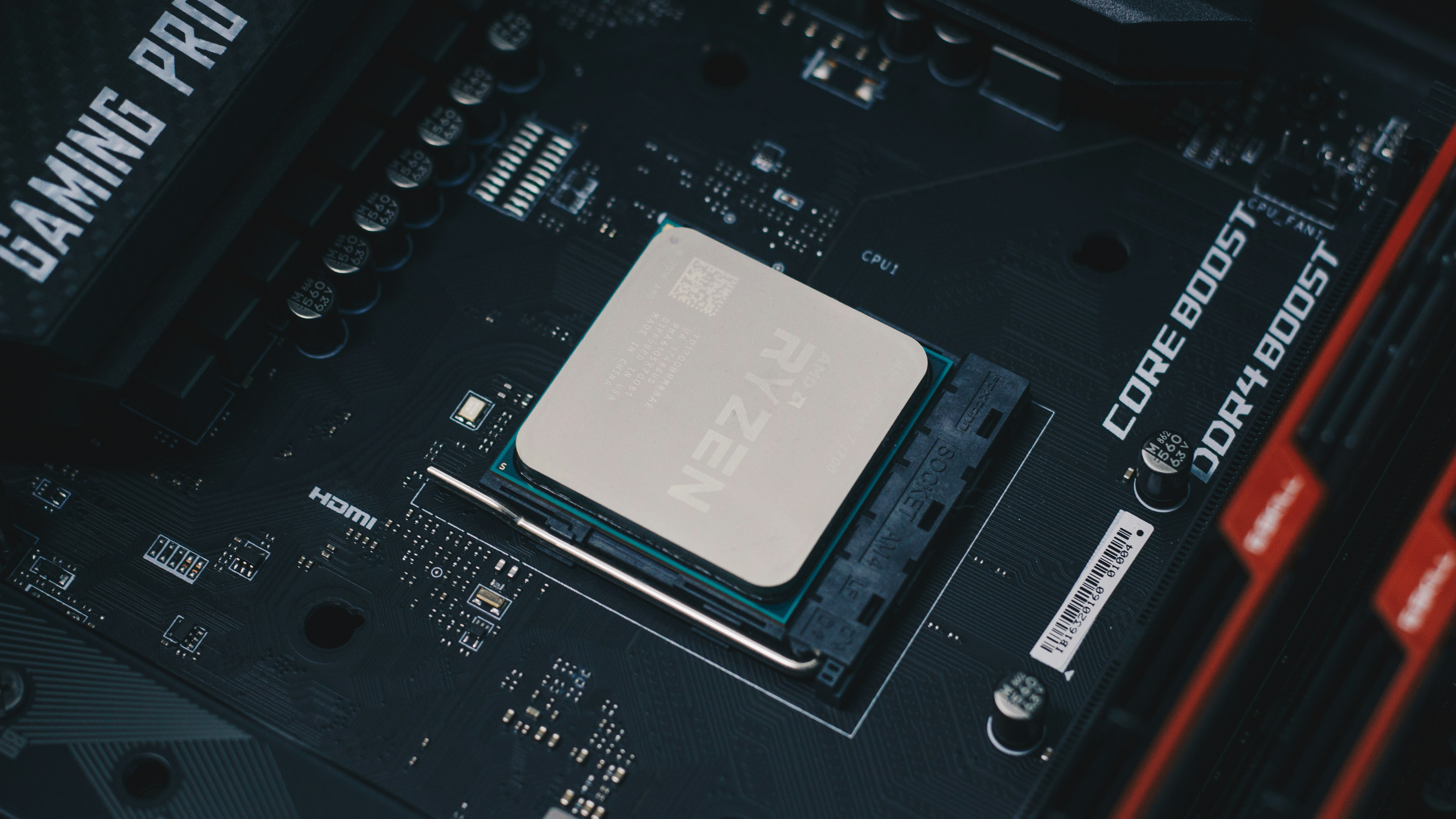
Pre-Employment Checks for Semiconductor Jobs: DBS, References & Right-to-Work and more Explained
The semiconductor industry represents the foundation of modern technology, with semiconductor professionals playing crucial roles in designing, manufacturing, and advancing the microchips that power everything from smartphones and computers to automotive systems and critical infrastructure. As semiconductors become increasingly strategic to national security and economic competitiveness, pre-employment screening processes have become increasingly rigorous and comprehensive.
Semiconductor careers span diverse environments from leading-edge fabrication facilities and design houses to equipment manufacturers, materials suppliers, and emerging compound semiconductor companies. Each sector brings unique screening requirements reflecting the strategic sensitivity of semiconductor technologies, the precision demands of nanoscale manufacturing, and the critical importance of maintaining both intellectual property protection and manufacturing quality standards.
Understanding semiconductor pre-employment screening helps professionals navigate career opportunities effectively whilst enabling employers to identify candidates capable of contributing to semiconductor innovation whilst maintaining appropriate security standards, manufacturing excellence, and technical precision. The screening processes examine not only technical semiconductor competencies but also manufacturing discipline, intellectual property awareness, and ability to work effectively in the highly regulated semiconductor ecosystem.
This comprehensive guide examines the full spectrum of pre-employment screening practices across semiconductor careers, from basic right-to-work verification through enhanced security clearance processes, technical competency assessment, and industry-specific requirements. Whether pursuing opportunities in chip design, wafer fabrication, process engineering, or semiconductor research leadership, understanding these screening processes enables semiconductor professionals to prepare effectively and advance their careers successfully.
The semiconductor sector's unique combination of cutting-edge technology, manufacturing precision, and strategic importance creates screening requirements that reflect both the technical demands of nanoscale engineering and the security considerations of strategically critical technologies. These processes ultimately support the continued advancement of semiconductors by ensuring high professional standards and technical competence necessary for breakthrough semiconductor innovation and responsible technology development.
Pre-Employment Screening for Semiconductor Careers: A Comprehensive Guide
Introduction
The semiconductor industry represents the foundation of modern technology, with semiconductor professionals playing crucial roles in designing, manufacturing, and advancing the microchips that power everything from smartphones and computers to automotive systems and critical infrastructure. As semiconductors become increasingly strategic to national security and economic competitiveness, pre-employment screening processes have become increasingly rigorous and comprehensive.
Semiconductor careers span diverse environments from leading-edge fabrication facilities and design houses to equipment manufacturers, materials suppliers, and emerging compound semiconductor companies. Each sector brings unique screening requirements reflecting the strategic sensitivity of semiconductor technologies, the precision demands of nanoscale manufacturing, and the critical importance of maintaining both intellectual property protection and manufacturing quality standards.
Understanding semiconductor pre-employment screening helps professionals navigate career opportunities effectively whilst enabling employers to identify candidates capable of contributing to semiconductor innovation whilst maintaining appropriate security standards, manufacturing excellence, and technical precision. The screening processes examine not only technical semiconductor competencies but also manufacturing discipline, intellectual property awareness, and ability to work effectively in the highly regulated semiconductor ecosystem.
This comprehensive guide examines the full spectrum of pre-employment screening practices across semiconductor careers, from basic right-to-work verification through enhanced security clearance processes, technical competency assessment, and industry-specific requirements. Whether pursuing opportunities in chip design, wafer fabrication, process engineering, or semiconductor research leadership, understanding these screening processes enables semiconductor professionals to prepare effectively and advance their careers successfully.
The semiconductor sector's unique combination of cutting-edge technology, manufacturing precision, and strategic importance creates screening requirements that reflect both the technical demands of nanoscale engineering and the security considerations of strategically critical technologies. These processes ultimately support the continued advancement of semiconductors by ensuring high professional standards and technical competence necessary for breakthrough semiconductor innovation and responsible technology development.
Right-to-Work Verification in Semiconductors
Right-to-work verification for semiconductor professionals involves standard UK requirements but with additional considerations arising from the strategic nature of semiconductor technology and the global supply chain collaborations that characterise the industry. Many semiconductor companies operate research programmes and manufacturing partnerships that span multiple jurisdictions, creating unique considerations for employment eligibility and technology transfer governance compliance.
Standard documentation requirements include British or Irish passports, UK birth certificates with National Insurance numbers, biometric residence permits, or appropriate visa documentation for international candidates. Semiconductor employers increasingly utilise comprehensive verification systems and secure identity platforms that align with the industry's emphasis on intellectual property protection and export control compliance processes.
The international nature of semiconductor talent presents particular opportunities and challenges, especially following Brexit and increasing geopolitical tensions around semiconductor technology. EU semiconductor professionals who arrived before 31st December 2020 may have settled or pre-settled status under the EU Settlement Scheme, whilst those arriving subsequently require appropriate visa sponsorship. The Global Talent Visa has become increasingly important for attracting world-class semiconductor engineers with expertise in advanced process technologies, semiconductor design, and emerging materials research.
Semiconductor companies handling strategic technologies or operating in defence-related sectors face additional considerations when employing foreign nationals, particularly regarding technology transfer restrictions and export control regulations. Understanding these limitations helps both employers and candidates identify suitable opportunities whilst maintaining compliance with national security and strategic technology protection requirements.
International recruitment in semiconductors requires careful attention to sponsor licence obligations and export control frameworks. Companies must ensure that employment of international staff complies with both immigration law and technology transfer regulations that may restrict access to certain semiconductor technologies or classified processes by individuals from different jurisdictions.
Security Clearance and Export Control: When Enhanced Screening Applies in Semiconductors
Security clearance and export control screening for semiconductor professionals vary depending on the types of semiconductor technologies developed, defence applications served, and specific strategic technology responsibilities. Understanding when and why enhanced screening applies helps semiconductor specialists prepare for clearance processes and identify roles that match their background and career objectives.
Basic Security Checks for Semiconductor Professionals
Basic security checks and background verification are increasingly common for semiconductor roles involving strategic technologies, export-controlled processes, or national semiconductor initiatives. These checks are essential for maintaining compliance with export control standards and demonstrating trustworthiness for roles involving significant access to advanced semiconductor technologies and strategic manufacturing processes.
Semiconductor specialists working for companies with government contracts, advanced technology developers, or strategic semiconductor manufacturers routinely undergo comprehensive security screening. The checks are particularly important for roles involving compound semiconductors, advanced packaging technologies, or direct access to export-controlled semiconductor equipment and processes.
Enhanced Security Clearance for Defence and Strategic Semiconductor Applications
Developed Vetting (DV) and Security Check (SC) clearances may be required for senior semiconductor positions involving defence applications, classified semiconductor research, or development of strategically sensitive semiconductor technologies. These enhanced clearances are particularly relevant for gallium arsenide technologies, radiation-hardened semiconductors, or semiconductor technologies supporting national security infrastructure.
Semiconductor professionals involved in defence semiconductor programmes, strategic technology development, or national semiconductor initiatives may require enhanced security clearance. The strategic importance of semiconductor technologies in modern defence systems and their potential impact on national technological sovereignty justifies comprehensive background verification and ongoing security monitoring.
The expanding role of semiconductors in critical infrastructure, defence systems, and strategic technological capabilities means that security clearance requirements are becoming more common across various semiconductor specialisations. Understanding these evolving requirements helps semiconductor professionals identify suitable career opportunities and prepare for appropriate clearance processes.
Professional Reference Verification in Semiconductors
Reference checking for semiconductor roles requires careful assessment of both technical capabilities and manufacturing competencies, given the precision-critical nature of semiconductor processes and the potential impact of manufacturing defects on product reliability and company reputation. Employers must evaluate candidates' ability to develop innovative semiconductor solutions whilst maintaining manufacturing excellence, quality standards, and intellectual property protection principles.
Engineering and Process Development References
Semiconductor development roles require references from engineering leaders who can assess process engineering expertise, semiconductor physics understanding, and appreciation of manufacturing precision principles. Given the complexity of modern semiconductor processes and the critical importance of yield and reliability, engineering references must address specific competencies in semiconductor processing, device physics, and manufacturing optimization.
Professional references should demonstrate experience with semiconductor environments, quality standards such as ISO/TS 16949 or SEMI standards, and practical fabrication implementation experience. Employers particularly value references that can speak to candidates' ability to design manufacturable semiconductor solutions, implement high-yield processes, and collaborate effectively with multidisciplinary engineering teams.
Manufacturing and Quality Assurance References
The increasing emphasis on semiconductor manufacturing excellence, zero-defect manufacturing, and supply chain reliability requires references that can assess candidates' understanding of semiconductor manufacturing requirements, statistical process control, and quality management systems. The highly competitive nature of semiconductor manufacturing requires professionals who can work effectively across process, quality, and yield optimization domains.
References from semiconductor fabrication environments, high-volume manufacturing projects, or quality-focused implementations provide valuable insights into candidates' ability to implement manufacturing excellence, manage process variation, and ensure compliance with semiconductor quality standards whilst maintaining production efficiency and cost effectiveness.
Innovation and Intellectual Property References
Semiconductor's focus on continuous innovation and intellectual property development requires references that can assess candidates' experience with technology development, patent development, and innovation management. The ability to develop semiconductor technologies that provide competitive advantages whilst protecting intellectual property is particularly valued.
Professional references for semiconductor roles must address experience with technology roadmap development, patent portfolio management, and innovation frameworks. Understanding of both technical constraints and commercial implications of semiconductor technology decisions demonstrates valuable business awareness alongside technical competence.
Technical Skills Assessment and Semiconductor Competency Verification
Semiconductor employers use comprehensive technical assessments to verify candidates' capabilities across the full spectrum of semiconductor development and manufacturing skills. Understanding these assessment methods helps candidates prepare effectively whilst demonstrating their technical competencies and semiconductor domain understanding.
Semiconductor Device Physics and Design
Semiconductor roles typically include practical exercises requiring candidates to apply device physics principles, demonstrate understanding of semiconductor processes, and explain design decisions for performance and manufacturability requirements.
Assessment scenarios may include MOSFET design challenges, process integration tasks, or yield optimization exercises. The ability to balance performance requirements with manufacturing constraints and cost considerations demonstrates practical semiconductor engineering capabilities.
Process Engineering and Manufacturing Technology
Many semiconductor roles include assessment of process engineering expertise, manufacturing technology knowledge, and understanding of semiconductor fabrication. These assessments verify practical knowledge of lithography, etching, deposition, and metrology processes essential for semiconductor manufacturing.
Technical testing may involve process optimization design exercises, yield improvement challenges, or equipment integration scenarios. The ability to design manufacturable processes whilst maintaining performance specifications and cost targets is essential for effective semiconductor manufacturing.
Semiconductor Materials and Emerging Technologies
Given the importance of materials innovation, assessments often focus on materials science expertise, compound semiconductor knowledge, and understanding of emerging semiconductor technologies. These evaluations verify practical experience with advanced materials, novel device structures, and next-generation semiconductor processes.
Semiconductor materials assessment scenarios frequently involve materials selection exercises, reliability prediction challenges, and emerging technology evaluation. Understanding of materials properties and emerging technology potential demonstrates valuable specialised semiconductor capabilities.
Intellectual Property Protection and Technology Security
Semiconductor's central role in strategic technology development creates extensive requirements for intellectual property knowledge and technology security expertise. Understanding these requirements and preparing for related assessment helps semiconductor professionals navigate compliance requirements and career advancement.
Patent Strategy and IP Management
Semiconductor roles require comprehensive understanding of patent protection processes, technology documentation standards, and intellectual property security protocols. Employers assess this knowledge through practical scenarios, IP audits, and verification of relevant intellectual property training and certification.
The complexity of protecting semiconductor innovations in competitive technology markets, patent landscape navigation, and multi-organizational development programmes requires specialised knowledge that employers specifically seek and verify. Professional development in semiconductor IP management and technology licensing enhances career prospects and demonstrates business awareness essential for commercial semiconductor development.
Export Control and Technology Transfer
Understanding of export control regulations, technology transfer restrictions, and international collaboration protocols demonstrates essential knowledge for modern semiconductor roles. This includes ability to implement technology security practices, assess export control requirements, and manage international technology sharing.
Knowledge of export control principles, technology classification processes, and international collaboration frameworks provides competitive advantages in globally-focused semiconductor roles. The ability to develop semiconductor technology that maintains compliance with technology transfer restrictions whilst enabling international collaboration is particularly valued.
Trade Secret Protection and Manufacturing Security
Semiconductor's manufacturing focus creates requirements for understanding trade secret protection, manufacturing security protocols, and process confidentiality requirements. Understanding these requirements and their practical implementation demonstrates valuable expertise for semiconductor manufacturing development.
Knowledge of manufacturing security, process documentation control, and competitive intelligence protection provides significant career advantages in semiconductor manufacturing companies. The ability to navigate complex confidentiality requirements whilst maintaining innovation pace and manufacturing efficiency is highly valued.
Industry-Specific Semiconductor Requirements
Different sectors implementing semiconductor technologies have specific pre-employment requirements reflecting their operational environments, technology applications, and regulatory characteristics. Understanding these sector-specific considerations helps semiconductor professionals identify suitable opportunities and prepare for relevant screening processes.
Semiconductor Fabrication and Manufacturing
Semiconductor roles within fab companies involve comprehensive screening reflecting established manufacturing requirements, cleanroom standards, and regulatory oversight of semiconductor manufacturing operations. Candidates typically undergo manufacturing safety checks, process discipline verification, and ongoing monitoring throughout employment.
Health and Safety Executive requirements and semiconductor manufacturing standards have specific requirements for fab operations, including cleanroom protocols, chemical safety standards, and equipment safety measures. Understanding these requirements and their technical implementation provides significant career advantages.
Automotive and Industrial Semiconductors
Automotive semiconductor applications require understanding of automotive quality standards, functional safety requirements, and automotive supply chain compliance. Pre-employment screening includes verification of automotive understanding and demonstrated awareness of automotive safety implications and quality requirements.
ISO/TS 16949 automotive quality standards and functional safety requirements require professionals who understand both semiconductor principles and automotive compliance requirements. The safety-critical nature of automotive semiconductors creates unique challenges that require specialised knowledge and rigorous validation approaches.
Defence and Aerospace Semiconductors
Defence semiconductor roles require understanding of military standards, radiation hardening requirements, and security protocols. The strategically sensitive nature of defence semiconductors creates unique technical challenges and career opportunities for semiconductor specialists.
Understanding of MIL-STD specifications, radiation hardening techniques, and security protocols provides valuable expertise for defence semiconductor roles. The combination of semiconductor innovation and defence requirements creates interesting challenges for semiconductor professionals.
Consumer Electronics and Mobile Semiconductors
Consumer semiconductor companies require understanding of high-volume manufacturing, cost optimization, and rapid product development cycles. The consumer focus creates unique opportunities for semiconductor professionals with commercial interests.
Understanding of consumer market dynamics, cost-performance optimization, and high-volume manufacturing provides valuable expertise for consumer semiconductor roles. The combination of technical innovation and commercial scalability creates dynamic challenges for semiconductor specialists.
Semiconductor Process Validation and Yield Optimization
Semiconductor's responsibility for demonstrating manufacturing reliability and process control creates specific requirements for expertise in process validation and yield optimization. Understanding semiconductor validation frameworks demonstrates essential capabilities for process development and manufacturing engineering roles.
Statistical Process Control and Yield Management
Semiconductor professionals must demonstrate understanding of statistical process control, yield analysis methods, and process optimization techniques. This expertise is essential for maintaining manufacturing quality and supporting high-volume production requirements.
Experience with SPC implementation, yield improvement programmes, and process capability studies provides practical evidence of capabilities in this critical area. The ability to design effective yield optimization whilst managing process complexity is particularly valued in manufacturing-focused semiconductor development.
Reliability Engineering and Quality Assurance
Understanding of reliability engineering principles, accelerated testing methodologies, and quality prediction demonstrates advanced semiconductor capabilities essential for demonstrating product reliability. These skills are increasingly important for semiconductor lifecycle management and customer qualification.
Practical experience with reliability testing, failure analysis, and quality prediction provides valuable reliability capabilities. The ability to implement effective reliability programmes whilst maintaining development schedules is highly valued in product-focused semiconductor environments.
Process Development and Technology Transfer
Experience with process development methodologies, technology transfer protocols, and manufacturing scale-up provides valuable expertise for semiconductor development. Understanding of development-to-manufacturing transition requirements is essential for successful semiconductor commercialization.
Knowledge of process development frameworks, technology transfer best practices, and manufacturing readiness assessment demonstrates comprehensive understanding of semiconductor development challenges. The ability to develop robust manufacturing processes whilst maintaining technology performance is particularly important for commercial semiconductor implementations.
Semiconductor Technology Innovation and Emerging Applications
Semiconductor's role in technological advancement requires specific expertise in emerging semiconductor technologies and application development. Understanding cutting-edge semiconductor research and applications demonstrates advanced semiconductor capabilities.
Advanced Node Technology and Moore's Law Scaling
Semiconductor roles increasingly require expertise in advanced lithography, extreme UV technology, and scaling challenges. Understanding of next-generation manufacturing processes, novel materials integration, and scaling economics is essential for leading-edge semiconductor development.
Practical experience with advanced patterning, novel device structures, and scaling optimization provides valuable technical capabilities. The ability to develop effective scaling solutions whilst managing manufacturing complexity demonstrates comprehensive technical and manufacturing competence.
Compound Semiconductors and Wide Bandgap Materials
Modern semiconductors require expertise in compound semiconductors, wide bandgap materials, and specialized applications. Understanding of gallium arsenide, silicon carbide, and gallium nitride technologies is increasingly important for specialized semiconductor applications.
Experience with compound semiconductor processing, wide bandgap device design, and specialized applications provides specialized technical capabilities. The ability to design effective compound semiconductor solutions whilst maintaining manufacturing feasibility is particularly valued in specialized semiconductor implementations.
Semiconductor Packaging and System Integration
Understanding of advanced packaging technologies, system-in-package solutions, and heterogeneous integration demonstrates valuable system architecture capabilities. The ability to implement comprehensive integration whilst maintaining electrical performance and thermal management is essential for modern semiconductor systems.
Experience with advanced packaging, chiplet integration, and system-level optimization provides practical evidence of systems-focused capabilities. The ability to implement effective packaging solutions that enable system performance whilst maintaining manufacturing cost is highly valued across semiconductor application sectors.
Preparing for Semiconductor Pre-Employment Screening
Successful navigation of semiconductor pre-employment checks requires comprehensive preparation, current technical skills, and clear demonstration of both theoretical and practical semiconductor capabilities. The precision-critical nature of semiconductor careers requires thorough preparation and professional presentation.
Technical Portfolio and Semiconductor Project Documentation
Building comprehensive portfolios of semiconductor projects, process implementations, and engineering documentation provides concrete evidence of practical capabilities and semiconductor contributions. Technical documentation of process developments, device designs, and manufacturing implementations demonstrate hands-on experience and engineering competence.
Professional portfolios should demonstrate progression from basic semiconductor processes to complex device integration, showing professional development and increasing technical sophistication. Documentation of yield improvements, successful product developments, and process innovations provides valuable evidence of both technical excellence and manufacturing contribution.
Professional Certifications and Semiconductor Training
Maintaining relevant professional certifications, semiconductor training, and specialized engineering qualifications demonstrates commitment to professional development and technical competence. Professional body memberships, process certifications, and semiconductor-specific training provide structured professional development pathways.
Professional development planning should consider both depth in specific semiconductor domains and breadth across the semiconductor technology ecosystem. The rapidly evolving nature of semiconductor technology requires continuous learning and regular skill updates to maintain current expertise and industry relevance.
Manufacturing Experience and Process Discipline
Developing experience with semiconductor manufacturing, process discipline, and quality systems enhances career prospects and interview performance. Knowledge of how semiconductor processes integrate across manufacturing operations and supply chains provides valuable context for technical roles.
Understanding of manufacturing methodologies, quality systems, and process control demonstrates valuable operational awareness that complements technical skills. The ability to communicate semiconductor concepts to manufacturing teams and understand production requirements is increasingly important for career advancement.
Future Trends in Semiconductor Employment Screening
The semiconductor industry continues to evolve rapidly, with technological breakthroughs, geopolitical developments, and application advances influencing pre-employment screening practices. Understanding emerging trends helps semiconductor professionals prepare for future career requirements and screening expectations.
Enhanced Technology Security and Export Control Assessment
Growing focus on semiconductor technology security, export control compliance, and strategic technology protection is driving more comprehensive assessment of security knowledge and export control awareness in semiconductor screening. Future screening may include detailed evaluation of technology security frameworks and strategic technology considerations.
The integration of semiconductors with critical infrastructure and defence systems requires professionals with broad security awareness and systematic technology protection approaches. Demonstrating commitment to technology security and export control compliance becomes increasingly important for career advancement in strategic semiconductor applications.
Sustainability and Environmental Impact Assessment
The emergence of environmental sustainability considerations in semiconductor manufacturing creates new requirements for understanding sustainable semiconductor processes, environmental impact assessment, and circular economy principles. Future screening processes may place greater emphasis on sustainable semiconductor development and environmental responsibility.
Understanding of semiconductor environmental impact, sustainable manufacturing principles, and lifecycle assessment becomes essential for career progression in environmentally conscious semiconductor organizations. Professional development across sustainability and environmental engineering provides valuable career advantages.
Artificial Intelligence and Semiconductor Design Automation
The growing importance of AI in semiconductor design, process optimization, and manufacturing automation creates new requirements for understanding AI applications in semiconductors and automated design methodologies. These emerging competencies provide significant career differentiation in technology-advanced semiconductor organizations.
Knowledge of AI-driven design tools, machine learning for process optimization, and automated manufacturing demonstrates valuable specialized expertise. Professional development in AI applications and design automation enhances career prospects in organizations developing next-generation semiconductor technologies.
Conclusion
Pre-employment screening for semiconductor careers reflects the critical importance of semiconductor technologies in modern electronics and the extensive responsibilities that semiconductor professionals carry for manufacturing excellence, technology innovation, and strategic technology development. From technical competency verification to security assessment, understanding these screening processes enables semiconductor professionals to navigate career development successfully whilst contributing to the industry's continued advancement and technological leadership.
The semiconductor sector's rapid evolution, technical complexity, and strategic importance create comprehensive screening requirements that ensure organizations can maintain manufacturing standards, technology leadership, and innovation capability whilst building capable engineering and technical teams. These screening processes, whilst thorough, ultimately support the industry's development by ensuring high professional standards and technical competence necessary for breakthrough semiconductor innovation and responsible technology advancement.
Success in semiconductor careers requires demonstrating not only technical expertise but also manufacturing discipline, security awareness, and adaptability to rapidly changing semiconductor landscape and emerging technology applications. Pre-employment screening processes provide opportunities for candidates to showcase these qualities whilst enabling employers to build teams capable of delivering reliable, innovative, and strategically important semiconductor solutions.
For semiconductor professionals embarking on their careers or pursuing new opportunities, thorough preparation for pre-employment screening represents an essential investment in long-term career success. By maintaining cutting-edge technical skills, developing comprehensive semiconductor project portfolios, and demonstrating commitment to manufacturing excellence and technology security, candidates can position themselves for meaningful contributions to the continued advancement and strategic importance of semiconductor technology across consumer electronics, automotive, industrial, and defence applications.


